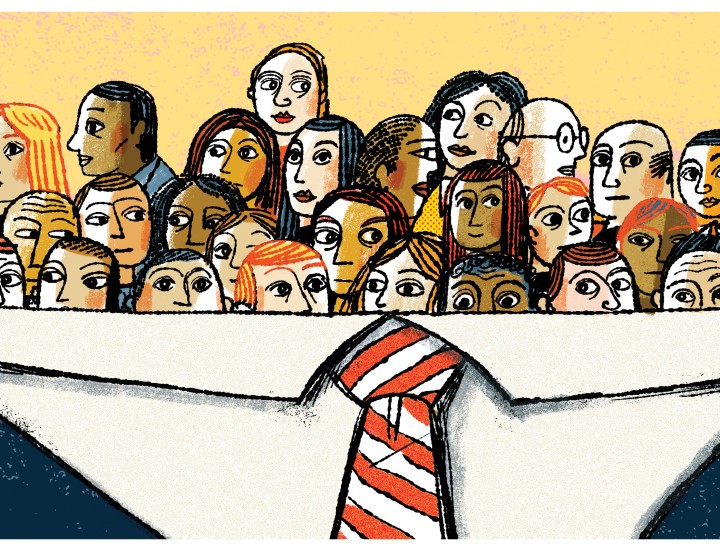Learning from Experience for Better Government

This article was originally posted by The Regulatory Review on December 12, 2017.
We need government. We need government to work well. More precisely, we need government to be effective, efficient, fair, courteous, understandable, and honest in the way it tackles the responsibilities legally given to it through democratic and other decision-making processes.
In addition, for government to work well, we need good people working in government. That is, we need workers equipped with the right set of skills, knowledge, and authorities to do their jobs well to advance the public’s well-being. Beyond that, we need them to learn continually from past experience, both what worked well and what did not.
Paul R. Verkuil focuses on the people who work in government in his book, Valuing Bureaucracy: The Case for Professional Government. So does John DiIulio, in Bring Back the Bureaucrats. Although I wholly agree with these authors’ assertion that government workers are critical to effective, trusted government and that government needs professional employees, I question their diagnoses of why governments have problems delivering on their objectives and their prescriptions for fixing those problems.
The impediment to good government is not a lack of professionalism among government employees, nor is it current civil service laws, although undoubtedly they could use some improvement. The problem is not contracting out government services, nor government’s use of grants to enlist others to tackle serious issues and pursue opportunities. When government contracts out for the right reasons—e.g., stimulating innovation, changing dysfunctional organizational cultures—and manages its contracts well, contracting is an invaluable tool complementing the work of government employees. Similarly, when grants are well-managed to encourage learning, discovery, innovation, and effective implementation across grant recipients, states and others function as “laboratories of democracy,” speeding outcome and productivity improvements.
The recent wave of hurricanes in the United States made abundantly clear how much we need highly capable professionals working in federal, state, and local governments across the country. Government worked impressively well in its early responses to Hurricanes Harvey and Irma in Texas and Florida because professionals across levels of government—along with private sector organizations and individuals—prepared for how they would respond to the pain, suffering, and costs of natural disasters. Sadly, government worked far less well responding to Hurricane Maria in Puerto Rico, and problems are arising with the longer-term recovery efforts in Texas and Florida, perhaps due to a scarcity of recovery resources.
That the early responses to Harvey and Irma went well is “no accident,” according to former Federal Emergency Management Agency (FEMA) deputy administrator Richard Serino, who explained that the agency had “been training people for this for 16 years.” Especially since the September 11 terror attacks and the establishment of the U.S. Department of Homeland Security, the federal government has trained state leaders, large cities, and “even tiny communities.” Before the storms, significant investments were made to assure communication among emergency responders after storms disrupted the power supply. A few local governments undertook major preventative actions, as well —such as stronger building codes and raised streets— to reduce storm consequences.
Training was informed by disciplined after-action reviews of 9/11, Hurricanes Andrew and Katrina, and other catastrophic events to figure out what went wrong, what went right, and how to do better. Tabletop exercises in the years leading up to the storms allowed local responders to come together, sort out roles, and learn how to perform well. FEMA created FEMA Corps in 2012 to fill personnel gaps and train more people to serve as emergency responders in times of high need. The federal government has started to use drones and other technologies, undoubtedly purchased through contracts, to assess damage and issue checks more quickly and accurately. The National Oceanographic and Atmospheric Administration has pushed continually to provide earlier, more accurate, and more precise weather forecasts.
In short, the lack of professionalism and the use of contracts and grants have not been the problems in need of attention. Governments’ responses to recent hurricanes suggest other problems that warrant more attention, as well as effective ways to deal with them.
Clear goals managed across organizational boundaries. Clear objectives that the public understands and embraces are essential to good government. So, too, is the authority and expectation that these objectives be managed across organizational boundaries. With Harvey and Irma, everyone understood that government was trying to prevent bad things from happening and keep costs as low as possible when they did. Everyone also recognized the need to manage across organizational boundaries. A similar approach should apply across government.
People preparation. With Harvey and Irma, the federal government, state and local officials, and others sorted out who needed to do what in advance of the storm. Government leaders started planning, preparation, and practice years in advance. They identified skill shortages to fill through training, FEMACorps, and other means. Goal leaders and team members should similarly be identified for every government objective. Goal leaders then need to convene their delivery teams—including program managers, front-line workers and their supervisors, IT and procurement experts, data analysts, researchers, and others—to plan, prepare, execute, review, adjust, and execute again. When that does not happen, important tasks do not get done or get done redundantly.
Learn, build knowledge, and share it. Emergency managers in the U.S. now operate as a continuous-learning-and-improvement community (CLIC), harvesting lessons learned through after-action reviews, data analytics, measured trials, and forecasting models. The emergency managers share knowledge broadly across the delivery chain, apply it, and brainstorm to find ways to do better in the future. Similar CLICs are needed for every government objective.
Adequate resourcing. Planning, practice, training, data, analytics, and forecasting all cost money, regardless of who delivers them, as does temporary housing, housing repairs, and other services. Moved by pictures showing the devastation of Harvey and Irma, Congress will likely appropriate funds to cover response and some of the recovery costs. Other parts of government that lack such vivid pictures to remind legislators why funds are needed can see their resources dwindle, disabling even the best laid plans crafted by the most professional employees. It is time to start piloting new approaches to government—perhaps by budgeting around objectives that mean something to the public instead of around organizational units that do not.
Well-designed accountability and motivational mechanisms. The emergency responders I witnessed on television were clearly motivated by compassion. For most parts of government, the opportunity to advance objectives that mean something to the public motivates far better than monetary rewards for meeting targets or beating others to the top—or penalties for not. Government is more successful when it uses mission, not money, to motivate.
Of course, as the devastation and pace of recovery in Puerto Rico indicates, government does not always succeed. To do better in the future, we will need to study and learn from Maria as well as Harvey and Irma. Among other lessons, we need to know how much the relatively slow and inadequate response to Maria, compared with the rapid responses to Harvey and Irma, stemmed from the inherent challenge of addressing a third major hurricane in the United States in a single month on an island without access to roads to and from undamaged communities—or due to a failure of political leadership or other factors.
Still, the responses to Hurricanes Harvey and Irma make clear that government can work remarkably well when we value, prepare, and adequately resource those who work in it.

